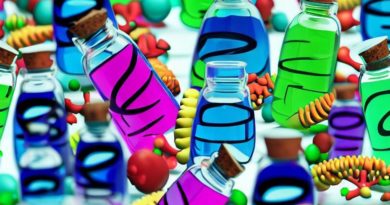Breastfeeding after Covid-19 vaccine is recommended as safe
26 August 2021
We have been asked on WhatsApp about the effect of the Covid-19 vaccines on breastfeeding. Although there is limited data regarding breastfeeding and the vaccines as pregnant and breastfeeding women were not included in clinical trials, all evidence collected so far suggests that it is safe to breastfeed after being vaccinated.
Guidance from the Royal College of Obstetricians and Gynecologists (RCOG) says that Covid-19 vaccines are recommended for breastfeeding women.
It states: “There is no plausible mechanism by which any vaccine ingredient could pass to your baby through breast milk.
“You should therefore not stop breastfeeding in order to be vaccinated against Covid-19.”
Similar advice is offered by the NHS, which states: “You cannot catch Covid-19 from the vaccines and cannot pass it to your baby through your breast milk.”
Initially, the vaccines were not recommended for breastfeeding women. However, this advice changed in December. Although Pfizer and Moderna are the preferred vaccines for pregnant women, current advice from the Joint Committee on Vaccination and Immunisation says that anyone breastfeeding can be vaccinated with any Covid-19 vaccine, depending on their age and clinical risk group, though people under 40 are recommended to have vaccines other than the AstraZeneca where available.
Vaccines can be divided into a number of types: some are known as live vaccines while others are inactivated—or non-live—vaccines. Inactivated vaccines contain either a killed version of the bacteria or virus, or a harmless bit of it, and cannot cause the disease they protect against.
Live vaccines contain a “weakened version” of the bacteria or virus and do not cause the disease in healthy people. None of the currently approved Covid-19 vaccines are live vaccines.
The Green Book, which contains the latest information about vaccines and vaccination procedures, has an extensive section on Covid-19 which states that there is “no known risk” associated with being given a non-live vaccine whilst breastfeeding.
It says: “The developmental and health benefits of breastfeeding should be considered along with the mother’s clinical need for immunisation against Covid-19; at the same time, women should be informed about the absence of full safety data for the vaccine in breastfeeding.”
There is some evidence that antibodies against Covid-19 may pass from vaccinated mothers to babies through breastfeeding. However, the Centers for Disease Control and Prevention in America says that more data is needed to establish how much protection this might provide for a baby.
UK charity the Breastfeeding Network states on its website: “As with other vaccines, there is no evidence that anything other than antibodies passes into your breast milk. These antibodies are not harmful to your baby, and may give some protection against the virus.
“There is no need to avoid giving your baby your breast milk directly after you have the vaccine, either by missing breastfeeds, or expressing and dumping milk.”
The World Health Organisation recommends that breastfeeding should continue after vaccination and says that vaccine efficacy is expected to be similar in breastfeeding women as in other adults. It says that, although currently there is “little data” on breastfeeding, “vaccines are unlikely to pose a risk to the breastfeeding child” and so it recommends vaccination in breastfeeding women and continuing breastfeeding after vaccination.
The information included in this article contains the latest evidence and official guidance available at the time it was written. This is not a substitute for medical advice. If you require specific medical advice please consult your GP or midwife.



